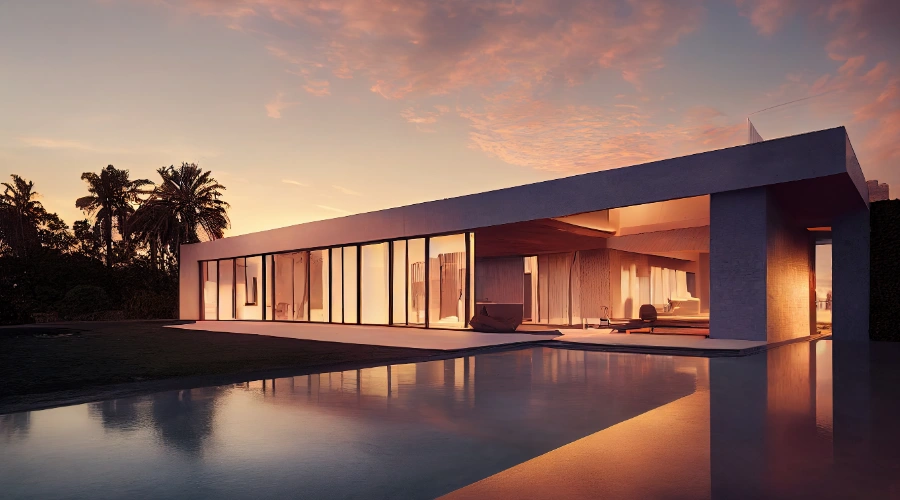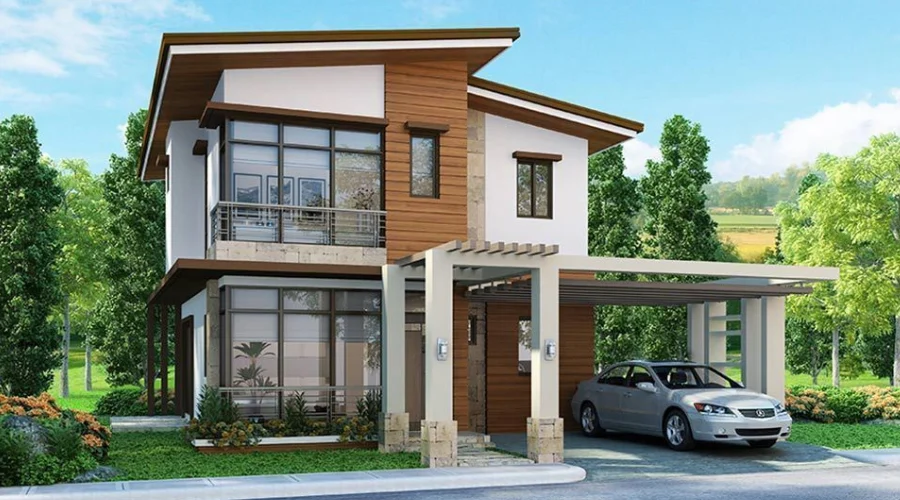At a certain point in life, everyone wants to own a house. But is owning a home similar to owning a villa? Villas and individual houses have their similarities and differences. They both have individual characteristics that shine. Read on to understand the differences and to choose your best option.
What is A Villa?

The history of villas goes back to the ancient Roman Empire. Hence, these houses are also known as Roman villas. In ancient days, villas were constructed by rich Romans.
A villa is a single-storey or multi-storey building connected to an outside terrace or garden. Some villas can connect with nearby villas located within a single compound.
A villa generally contains a pool, garden, farmlands, and other lavish amenities. In the present day, villas are more common in suburbs than in metropolitan cities.
Pros of a Villa
- Villas are built in large areas and give people privacy compared to apartments.
- Villas let their owners have their touch of personalisation.
- They are a long-term investment.
- Villas offer built-in gyms, parks, and clubhouses that help increase the overall experience of living.
Cons of a Villa
- The cost of constructing a villa or buying a villa, along with its maintenance cost is high.
- They are mostly built in the outskirts of cities and it may be hard to commute to schools, hospitals, or other services.
- Villas are hard to resell due to their expensive prices.
What is An Individual House?

An individual house is a private residential living space that is not connected to other housing units. It is not connected or shared with other neighbouring units. An individual house contains backyards, driveways, or other amenities.
Pros of an Individual House
- An individual house has privacy as it is not connected to neighbouring walls.
- It can offer a range of customisation options and provide large indoor and outdoor spaces.
- In the future, the house can be expanded by adding guest rooms, gym areas, or other additional spaces as required.
- They are a great choice for investment.
Cons of an Individual House
- Compared to townhomes, individual houses may cost a lot.
- The owner has to solely bear the repair and maintenance costs.
- Additional security is needed, like cameras or alarms.
- Unlike apartments, individual homes have less access to maintenance services like trash collection and snow clearance.
Differences Between Individual Houses and Villa
Though villas and individual homes may be similar in functionality, there are certain notable differences between them. These are listed below
| Characteristics | Villa | Individual House |
| Size | Villa sizes generally start with larger areas of 2500 sq ft and can go beyond 10,000 square feet. | Individual houses generally have highly variable sizes.The minimum starts from 3oo square feet and can go beyond 10,000 square feet. |
| Location | Villas are generally located in exclusive allotted areas. | An individual house can be built on any type of land. |
| Space | Villas are often spacious, with big areas for each room, and usually represent luxury. | Individual houses can be compact and have simpler designs. |
| Affordability | The starting price of villas in a small town is generally at least ₹ one crore. | An individual villa can be purchased in small towns from a starting price of ₹35 lakhs. |
| Facilities | The facilities of a villa usually include gyms, gardens, and pools. | The facilities of an individual house include basic facilities; others are just additions to it. |
| Privacy | Villas include high privacy for their owners, keeping the neighbours at a distance. | Privacy of An individual house primarily depends on the proximity of neighbouring properties. They can connect you with neighbours, or keep them at a distance. |
| Community | They are gated communities and can have shared amenities. | They can be standalone or part of a community. |
| Maintenance | They are managed by the community, which provides maintenance services. | The maintenance is the homeowner’s responsibility. |
| Investments | They have strong investment potential with good appreciation, rental income, and other benefits. | Investment potential can vary depending on the location and trends in the market. |
Who Can Choose Villas?
People who have large families and are looking for ultimate privacy can choose villas. Additionally, lifestyle and the ability to fund them play a key role in opting for villas.
High-earning professionals and business executives who like to live in a calm and comfortable environment generally opt for villas. Most villas are owned by celebrities and public figures to maintain high-end security and privacy.
Villas are costly options; hence, consider all the affordable options before getting one.
Who Can Choose Individual Homes?
Families that are compact and have children may opt for individual homes as they give affordable options for both indoor and outdoor activities.
Individual homes are the stepping stone of experience for first-time home buyers. Professionals and remote workers earning a decent amount of salary can invest in an individual house. People who are fond of social connections can choose individual homes over villas.
Conclusion
In short, both villas and individual homes are good investment options. However, the preferences may differ depending on the individual. Villas are luxurious residences, while independent houses are more on the affordable side. Make sure to decide on the type of residence that best suits your taste in lifestyle.
FAQs
Back in the Roman days, villas were country estates of luxurious forms made of freestanding houses that were surrounded by agricultural purposes.
A villa is a more luxurious form of a house that contains a pool, garden, farmlands, and other lavish amenities. In the present day, villas are more common in suburbs than in metropolitan cities.
A villa is generally bigger than a house. Villas are normally lux

